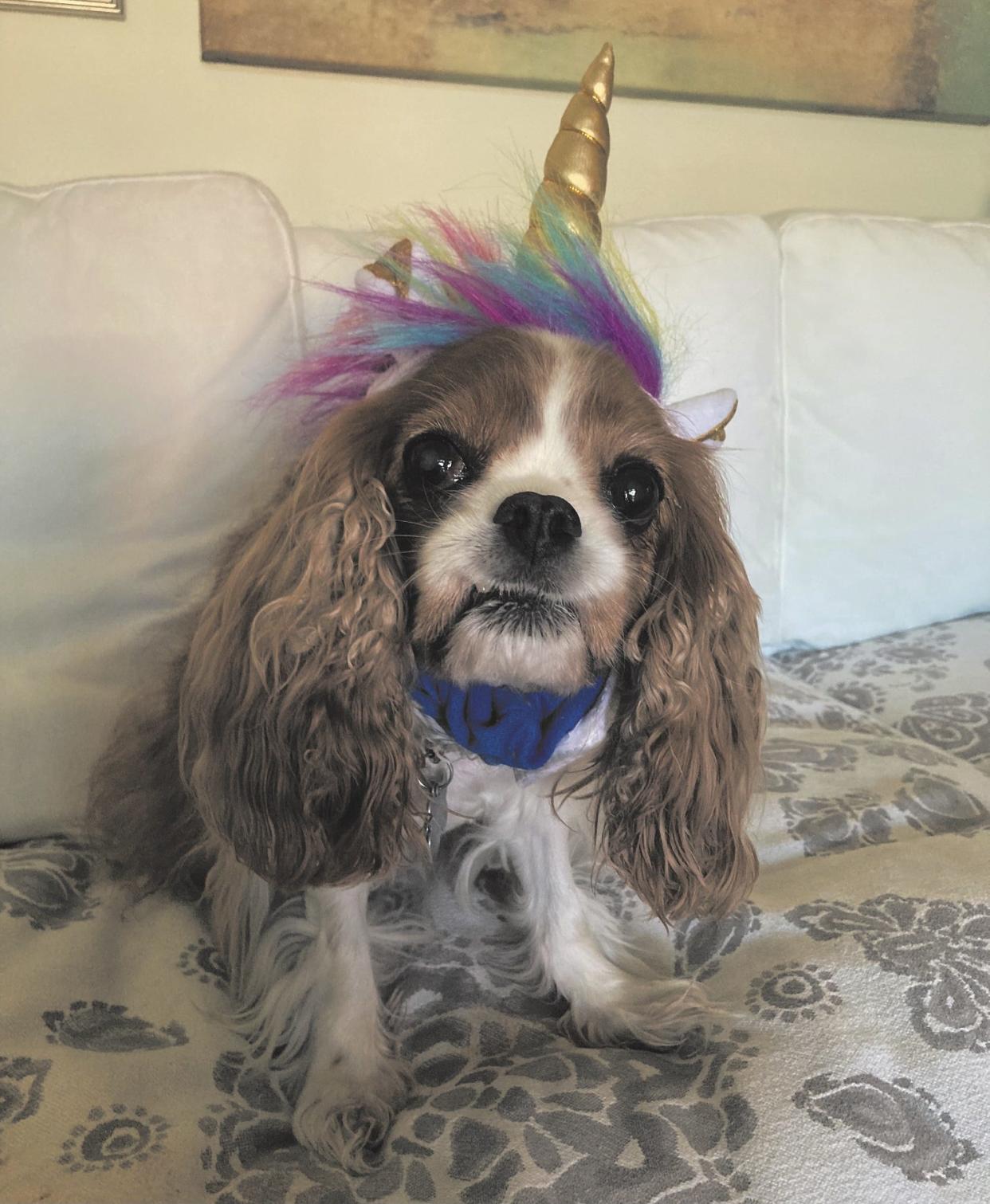Happy Halloween! Tips to keeping your pet safe and having fun during the popular holiday

If you love dressing up, getting scared and eating candy, Halloween is probably your favorite holiday. But your pet may not share your love for the spooky season. To make sure they join you in having a frightfully delightful time — without a scary trip to the veterinary ER — experts have weighed in on Halloween hazards and how to avoid them, plus ways to keep “howl-o-ween” fun for pets.
Tricky Treats
Pets love to share our food, and most don’t hesitate to raid our plates or steal our snacks. Pay attention to what you buy to hand out on Halloween — or have around for yourself. Sugar-free candy has benefits for people on special diets, but when it contains an ingredient called xylitol (sometimes called birch sugar), it’s toxic to dogs. Xylitol is a natural sweetener found in many products, from chewing gum to candy to baked goods, but that doesn’t mean it’s safe for dogs to ingest.
“It results in life-threateningly low blood sugar, and in really high doses, it can result in liver failure,” says Justine Lee, DVM, who’s board certified in both emergency critical care and toxicology. “You always want to check candy to see if it says ‘xylitol’ or ‘sugar-free’ on it anywhere.”
Interestingly, xylitol is not toxic to cats, Dr. Lee says. And because cats lack a sweet tooth, they’re less likely to nibble on foods that contain it.
You might know that grapes are toxic to dogs, but don’t forget that dried grapes — raisins or candies such as Raisinets — can also cause problems. If dogs ingest enough, they may need to be hospitalized for kidney failure.
Items containing chocolate can be a concern as well, but not necessarily as much as you might think. It generally takes about a pound of chocolate per 40 pounds of body weight for milk chocolate to become an issue, says emergency and critical care specialist Tony Johnson, DVM. “If your golden retriever snarfs up a chocolate chip cookie, he may get diarrhea, but you’re not usually going to end up with anything more severe than that.”
Chocolate items that contain macadamia nuts can be a double whammy since the tasty nuts can cause hind leg weakness, vomiting and diarrhea in dogs who down them.
If you’re having a party, set out a bowl of treats for guests to give pets, but ask them to limit the number they give. Small pumpkin-flavored dog biscuits or slices of apple spread with peanut butter or squeeze cheese are sure to be a hit with dogs.
Costume Capers
Popular pet costumes include Cookie Monster, cupcake, bat, butterfly and dinosaur. My dog Sparkles is going as a unicorn. Here’s how to make fancy dress fun and safe for pets.
Fear Free lead trainer Mikkel Becker dresses up her dogs for short periods at home to get cute pictures. Otis and Indiana Bones get lots of treats during the photo session, then costumes come off, although Halloween-theme collars or bandanas stay on longer. Wearing a costume is a good skill to have that can generalize to other situations, such as wearing a onesie after surgery to protect an incision or a snug-fitting calming garment during a thunderstorm.
Start to accustom pets to costumes weeks ahead of time, and keep practice sessions short — 30 seconds is plenty. Becker gives treats to her dogs for sniffing the costume, allowing it to be placed on their back, letting it sit on their back, and for any fitting of it or maneuvering it onto the body. “Most dogs and cats do best with costumes that are vestlike and can be secured with a simple placement over the back and under the stomach and front of chest without having to maneuver to pull it over head and limbs,” she says. Most important, if your pet doesn’t enjoy this haunting holiday, give him a quiet retreat in your home, away from the action.
— Kim Campbell Thornton
Do you have a pet question? Send it to askpetconnection@gmail.com or visit Facebook.com/DrMartyBecker. Pet Connection is produced by veterinarian Dr. Marty Becker, journalist Kim Campbell Thornton, and dog trainer/behavior consultant Mikkel Becker. ©2023 Andrews McMeel Syndication
This article originally appeared on South Bend Tribune: Pet Connection: Tips to keep pets safe during Halloween

